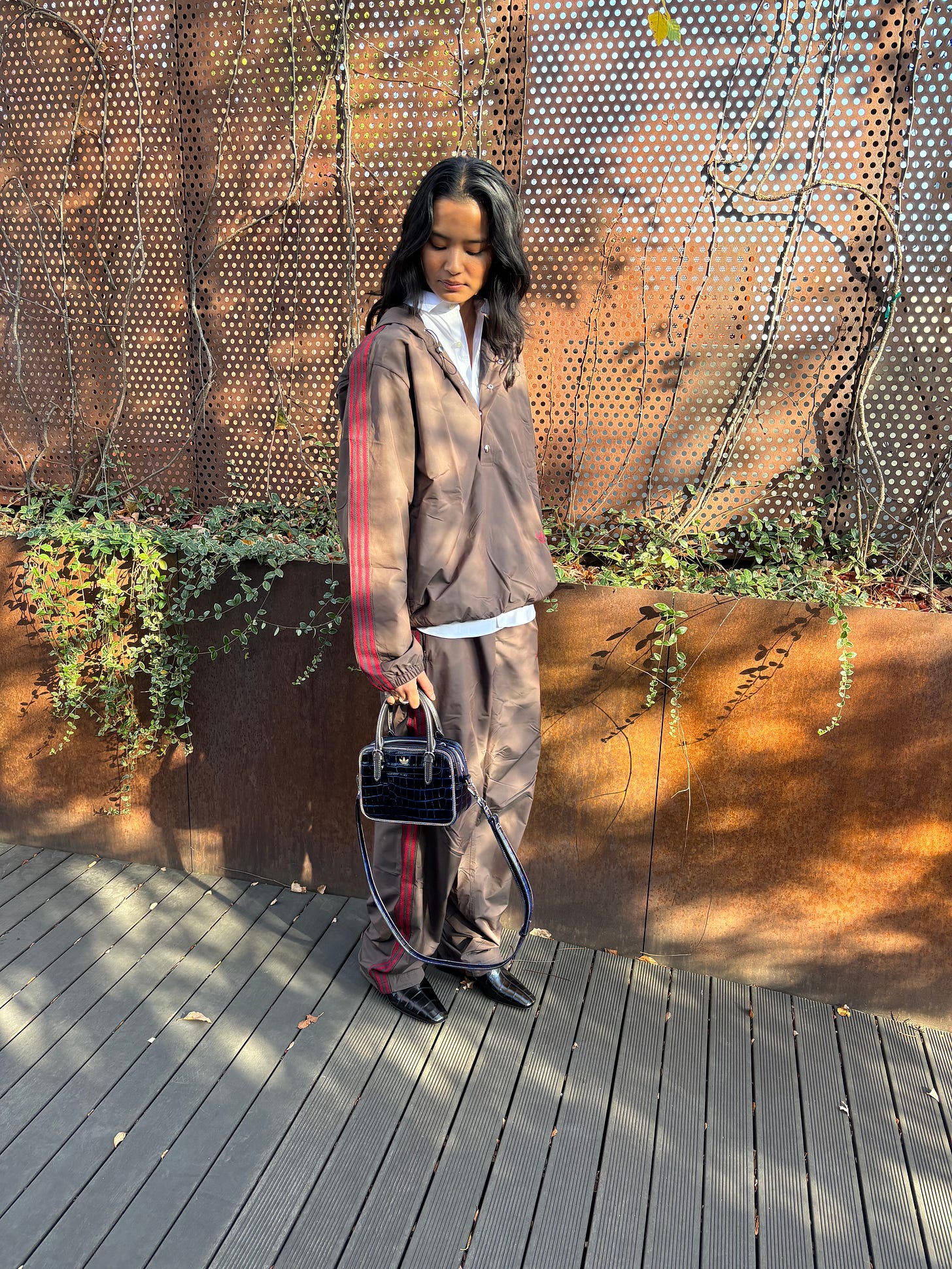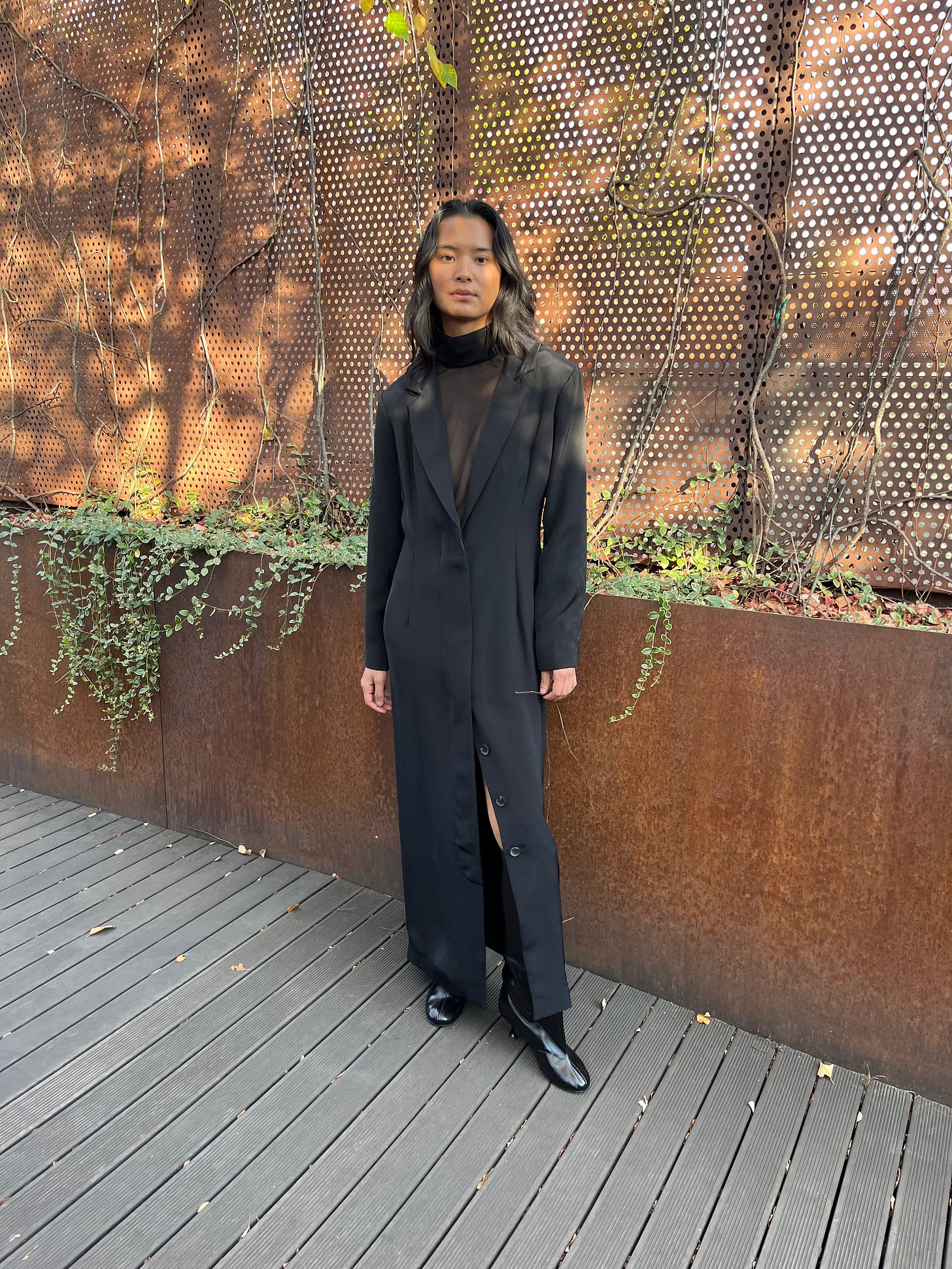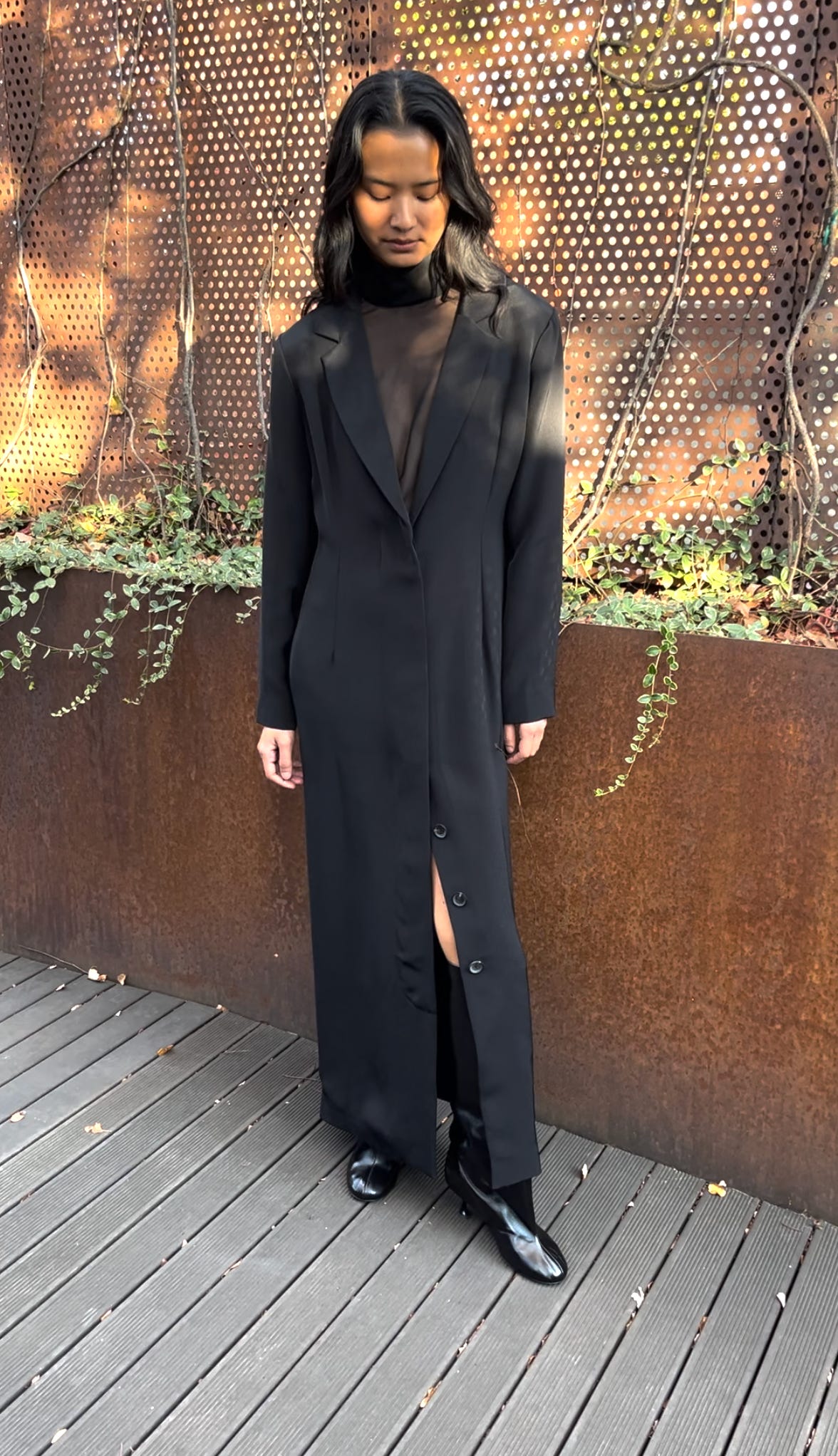Independent fashion and the once pervasive multi-labeled New York City boutique is in a new chapter.
What is its fate in a post-pandemic world? And what does that look like in an ever shifting culture of fractured attention spans and conspicuous consumption?
These are the questions my friends and I have asked ourselves for the past year as the landscape of the city, and world at large, has migrated rapidly out of stores and onto phones.
Opening Ceremony, Totokaelo, Need Supply are some of the multi-branded experiential shopping downtown New Yorkers parted ways with during the pandemic.
What lies in its wake? Who are its progenies? Is indie fashion really dead?
The first job I landed in New York City was at infamous SoHo boutique Opening Ceremony.
A relic of downtown, cult-cool brands packed into a funhouse of its own aesthetic imagination and brassy zeitgeist with a revolving door of equally iconoclast employees main charactering for any and all who came for an in-person fashion show everyday at 35 Howard St.
The brief yet formative tenure initiated me into the world of independent New York fashion.
And this is where I continue to be today.
L’ensemble
One of the people I have met along the way is Dawn Nguyen, founder and owner of L’ensemble — a new luxury boutique established just a few years ago in Brooklyn, New York.
Having worked together in the past for another multi-labeled brand, we recently reconnected as she started her own.
It is no easy feat to create and start anything in this city.
I was struck by how Nguyen manifested L’ensemble into a sharp curation of elevated, minimal-minded clothing for the modern and intentional thirty plus New York fashion-conscious woman.
Timeless modernity in the vein of European luxury.
Nguyen herself unpretentious and entirely disarming as someone who plays in this sect— a refreshing rarity.
Situated on the waterfront district of Dumbo, it evokes a luxury haven opposed from what we have come to know the borough to be.
In a pre-pandemic New York, stores of this elk would more or less exist solely in the coveted real estate neighborhoods of Manhattan.
Brooklyn had its regarded spaces such as the former Bird Boutique which helped cement the boroughs now infamous aesthetic. But there were distinct sartorial lines between Manhattanites and its more suburban, sleepy, hipster cousin Brooklyn.
It feels as if the lines have all but blurred now.
Chanel and Hermès in Williamsburg. Curated vintage boutiques littered amok on Orchard St in the Lower East Side.
Some argue this was in process, the pandemic only poured gasoline.
Is there a new wave of elevated Brooklyn boutiques?
I explore these topics and more below in my conversation with Nguyen as we talk about her space, independent fashion and dressing for New York dates.
Additionally, we curated four L’ensemble looks to convey the effortless and intentional way each piece can live in a woman’s closet.
(All currently available to shop online or in store.)
L’ensemble Instagram: @lensemble.us
*This interview has been edited for length and clarity.
Can you talk about what brought you to create L’ensemble?
The idea of L’ensemble came because I felt there was a need for a different kind of boutique shop. I felt a lot of the stores [in New York] were the same. They had the same brand matrix or a little bit too young, too hype or too mature.
There’s no in-between.
And I was going through a break up at the time, I felt all my clothes I had before were so buttoned up. I didn’t even know what to wear to go on dates.
There wasn’t a good store for me to go to where it was my vibe but I could still find pieces if I wanted to be a bit sexier and have it still feel like me.
Where are the stores for thirty year olds or forty year olds? I felt that didn’t exist at the time. And all my girlfriends felt the same way.
Then after covid you start thinking about what you want to do. I really missed curating, discovering brands, telling people about them.
It was just the right moment.
I love the space you’ve curated. It’s so beautiful and calming.
We wanted it be like a spa. You come in, you feel at peace to take your time and browse. Shopping is a treat yourself thing. Some of these pieces are investment pieces so I don’t think people need to feel rushed when they are browsing. It’s your time.
When you go to certain storefronts, it’s packed. [Sometimes] you don’t know who really works there. When you are in an environment like that it’s overwhelming. Even if I am interested in something, I’m not even going to inquire about it.
So setting our environment like this gives you the time to touch and discover.
Do you feel multi-branded stores are coming back? Because for a while it felt like they were falling off.
They’re definitely coming back. But it’s funny they are all in Brooklyn right now. Like Ven Space and Outline.
They’re in very neighborhood spots though. They are taking over that Bird client.
Maybe there’s a new guard but it’s no longer in Manhattan?
There’s just that Essex store. It’s very young streetwear, hype-y. So I’m not really going there.
I haven’t had a great shopping experience in a long time. Unless I go somewhere super high end like The Row.
At multi-branded boutiques, you’re kind of just in there by yourself.
So what is the process of how you choose your brands? Are you more specific now than in the beginning?
It was a blessing we didn’t get the typical big boutique brands as it forced us to get more creative. And to create a different kind of brand matrix.
I’m so happy it worked out that way. There’s so much fashion out there so anything that makes me kind of excited.
‘This feels fresh.’ Like Judy Turner.
Whenever I look at his collection it feels so refreshing, new and exciting. No one’s doing things like this. Who wants to be wearing something they see some else down the street wearing?
Dressing is so intimate and personal. You don’t want to just look like everyone else.
I have been thinking about localizing my surroundings and the things I consume.
Yeah, definitely. There’s this brand called Bergfabel from Tyrol, Italy. They don’t have an Instagram or a website. The only presence they have on social media is a fan account.
All the tags on the garments are handwritten by the designer himself. There are little pouches of lavender he picks from his mother’s garden. He goes to the factories and brings the women pastries.
I love to work with the smaller brands that are thoughtful and considered. Because they want their brand to succeed too where the bigger guys are about numbers.
That’s why we are trying to move from some of our bigger brands to the smaller ones.
You previously mentioned you started L’ensemble to fill that gap of what you didn’t see out in the fashion industry. Do you feel you envisioned the kind of woman you wanted to dress for?
I guess it is my ideal store. My friends seem to like it. The clients seem to like it. It’s interesting we get clients who tell us they don’t care for the bigger brands we carry.
I do feel every type of person can find something in here they love and enjoy. And having a good, broad price range. We all love The Row and Lemaire but you can’t always spend that on everyday pieces. You need a variety.
You don’t want anyone to feel intimidated to come in. But if you do want the special piece, we also have that too.
I’m big on practicality. I think clothes need to be functional and wearable. I don’t like over designed brands that make things too precious. No one is going to wear that. That isn’t real life.
We need to wear our shit. We need to beat it up. It needs to last. We live in New York.
Recent conversations about the state of fashion whereupon my thoughts and sentiments were crystallized:
“Brands have to compete a religious amount to get seen now. The ones who get there have dedicated teams and resources to create those viral moments everyone seems to covet. But once you attain virality, how do you maintain? And those popular brands are not selling anything I personally find interesting or unique. They are mostly middle of the road, basic-girl stuff.” — PR Agent
“A lot of these independent New York brands who have closed production need to be more honest about why— they ran out of money. Point blank. Let’s not beat around the bush. How do we maintain integrity and autonomy without selling out? How do we survive in this economic climate? Can indie brands exist anymore like they used to?” — New York designer
I do not purport to have any answers to justify the questions I asked and have been asked.
I do believe it is an ongoing, transitional post-pandemic phase that ails us all. No one is untouched whether in fashion, music, cinema etc. from the grasp of rapid technological advancements and a changed economic structure as a result of chosen technocrats.
If I can add a drop in the bucket of optimism for future life, I do so by doing this.
What awaits us in the New Year? X
You can also find me on my Instagram— @michellephanh


















